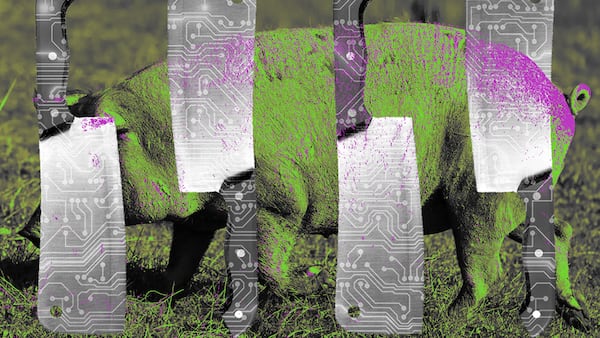- US investigators are now regularly grappling with crypto while working their cases, TRM Labs reports.
- 60% of crypto-related investigations started off without an obvious crypto component, respondents said.
- Agencies are trying to give their detectives the resources necessary to deal with this new component in their cases.
Officers are increasingly stumbling on crypto in the course of investigations.
But Ari Redbord, the global head of policy and government affairs at TRM Labs, told DL News that “there is no such thing as ‘crypto crime.’”
“Crypto, like cash, is the means of value transfer in the commission of all kinds of crimes,” Redbord said. “As we move into the future, every investigator will have cryptocurrencies as part of their cases, the way they have fiat and even cell phones today.”
Crypto’s role in crime has come to the fore since the Hamas attacks — combined with the twin scandals of FTX and Binance — amped up political pressure on the crypto industry even as prices soar.
Redbord’s comments were made in the context of TRM Labs’ latest report on the use of crypto in illicit activity, where researchers surveyed over 300 mostly US-based law enforcement professionals.
Respondents — about half of whom worked for the federal government and the rest in state, county, and local outfits — estimated that more than 40% of their agency’s investigations in the previous 12 months had involved cryptocurrencies.
But 60% of these investigations started off without an obvious crypto component, the report said.
Pig butchering, for example, is a growing phenomenon. Fraudsters reach out to their victims by text or on social media and eventually — either through a romance scam, or by promising financial tips — dupe their victims into sending them crypto funds.
While pig butchering mostly occurs in Southeast Asia, cases are popping up in the US as well.
Individual crypto-related crimes involved an average of $295,000 in stolen funds, the report said.
Money laundering occurred in the cases of 62% of investigators, while 55% of detectives cited fraud, scams, phishing, and tax evasion.
Training and tools
With a rising number of criminals using crypto for one purpose or another, US law enforcement agencies are investing resources to tackle the technology’s pervasiveness.
Almost 90% of respondents said their agencies provided some degree of training in crypto, and 80% of them said they were “highly empowered” to investigate crypto-related offences.
But virtually every officer said they needed more training.
Nearly half of the respondents who said they had adequate tools found crypto-related cases easier to investigate than conventional ones.
That’s despite 70% of investigators reporting their crypto-related cases were “very” or “extremely” complex.
The survey also found differences between federal and state outfits. Half of the federal agencies already used blockchain analysis tools — but only 11% of state agencies did the same, despite receiving “the lion’s share of victim reports,” according to the survey.
“The correct equipment can make an enormous difference in achieving a successful outcome,” the report said, adding that 87% of the users of blockchain analytics called the tools crucial to their investigations.
One of the challenges investigators face is chain-hopping, the act of moving funds from one blockchain to another.
Some 66% of respondents said their cases spanned several blockchains and 60% said the cases were cross-border, which is why help from the private sector — especially from large crypto exchanges — was deemed essential by virtually all respondents.
Nevertheless, over 60% of crypto-related investigations conducted by respondents led to positive outcomes, ranging from convictions to the confiscation of stolen assets.
Got a tip about the use of crypto in crime? Reach out to tcarreras@dlnews.com




